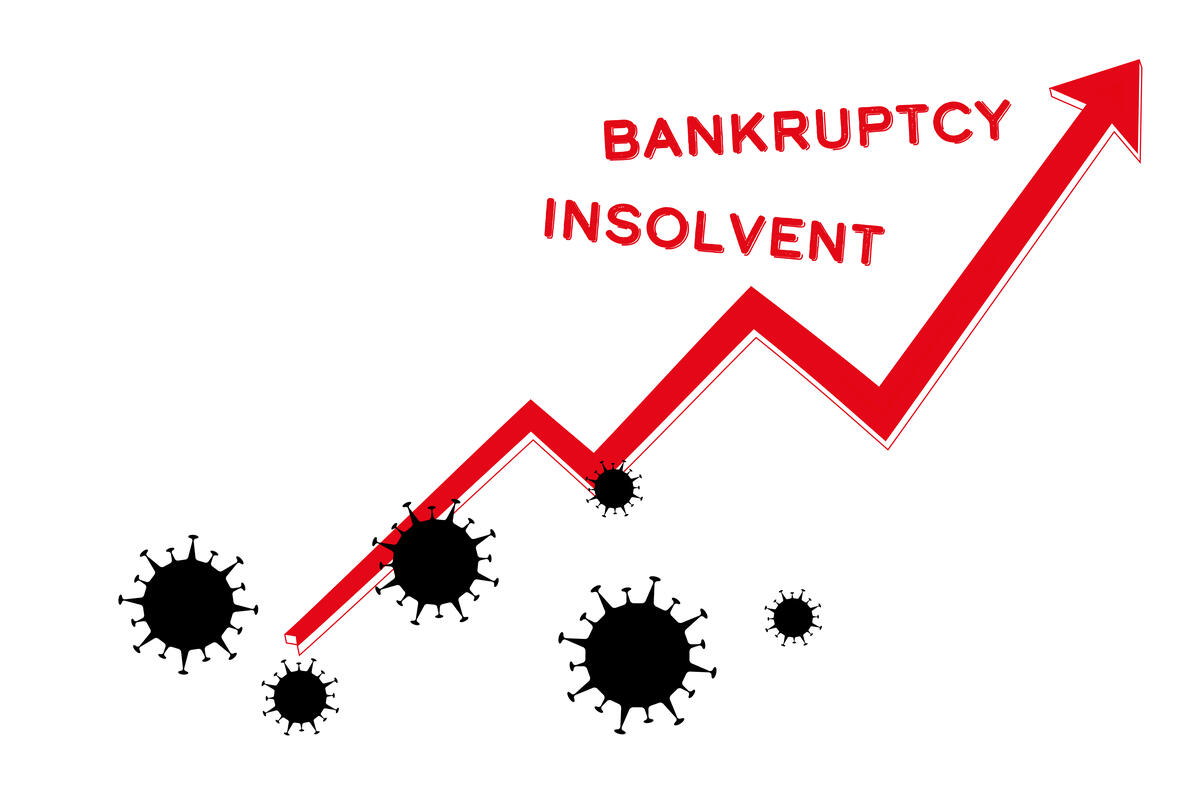Blog
Insurance Opportunities to Support Small Business Growth

During our webinar on March 19th - organized in partnership with Berne Union - our guest speakers discussed the critical role of insurance for SMEs. Insurance acts as a shock absorber of adverse events, provides critical risk mitigation services, encourages saving, improves access to credit, and helps attract private capital to economies.
They highlighted how insurers and other players in the sector each bring their expertise to help reach SMEs in Emerging and Developing markets (EMDC):
- Investment to create insurance markets – The role of DFIs
- Holistic resilience solutions for MSMEs – The role of think tanks
- Export credit insurance and insurance against political and commercial risks – The role of export credit agencies
- Employee’s SMEs healthcare solution – The role of insurtech
IFC, a leading private equity investor and advisor in the insurance sector
The IFC has invested $2.5 billion in the insurance sector, with a current portfolio of $350 million across 20 insurance and insurtech companies in 28 countries. The investments are distributed across Latin America and the Caribbean (43%), Africa (24%), Asia (22%), and Europe (11%). IFC's investment strategies include equity investments, debt and hybrid capital, early-stage insurtech, co-investments with IFC Health and PE funds, and surety/credit risk-sharing.
The investments have significant development impacts, such as risk insulation and management, poverty reduction, economic growth, capital markets development, capital mobilization for emerging markets, healthcare services improvement, and enhanced access to finance for SMEs through credit and collateral insurance.
Cenfri, enhancing MSME resilience in Africa
In African markets, MSME face challenges such as low survival rates, high failure rates within the first year (less than 50% of MSMEs survive beyond five years in many countries across Africa and Asia) and difficulties in graduating from hyperlocal, informal structures to growth-oriented enterprises. The key risks faced by MSMEs include natural disasters (fires, droughts, and floods) and 40% of African MSMEs face productivity losses due to extreme weather. They are also exposed to business interruption, health risks, and logistical challenges.
Insurance can help MSMEs manage these risks, offering products like fire insurance, weather insurance, theft insurance, health insurance, and business interruption insurance.
However, MSMEs remain underserved by insurance, with only 4% of MSMEs in Ghana and 2% in Uganda, Malawi, and Lesotho having insurance coverage and less than 5% of MSMEs in the ASEAN region having any form of insurance. MSMEs mention cost, complexity, administrative burden as the main obstacles to getting insured.
MSMEs differ vastly based on size, age, sector, and other factors, making them a hard market to reach for insurers using traditional business models. A high proportion of MSMEs are unbanked, and limited data on MSMEs makes understanding their risks and needs challenging. In addition, regulatory challenges and economic stability in emerging markets complicate the work of insurers, leading to a lack of insurance culture in EMDC.
There is a need to improve awareness and make insurance products more tangible and tailored to MSME needs to increase insurance uptake. To reach SMEs more effectively, insurers can develop innovative risk management strategies such as:
- Leveraging Technology: surveillance cameras for theft, tracking devices for animal health, and early warning sensors for disasters.
- Data Utilization: Digital platforms can help insurers gather data to better understand SME risks, distribute products, and provide customer support.
- Partnerships: Collaborating with banks, fintechs, and digital platforms can provide valuable data, distribution channels and access to insurance products.
- Bundling Services: Offering bundled services that include insurance, loans, and savings to provide SMEs with a comprehensive risk management solution.
- Regulatory Support: Engaging with regulators to create a supportive environment for innovation and digital insurance solutions is crucial.
- Education: Increasing awareness among SMEs about the benefits of insurance and how it works can help improve adoption rates. Literacy campaigns and tangible value-added services can make insurance more accessible and appealing.
UK Export Finance, the role of Export Credit Agencies (ECA)
Export credit agencies provide trade credit insurance and working capital to small business in their export journeys where private insurers may be reluctant to provide coverage due to higher risks. ECA protects against non-payment when exporting goods abroad, particularly in developing countries.
In addition to trade credit insurance, UKEF provides working capital solutions:
- guarantees to financial institutions to cover up to 80% of the liabilities associated with SME clients. This includes coverage for import letters of credit (LCs) and standby LCs, even if they are not export-related.
- guarantees to banks to provide working capital to end buyers in foreign countries, helping UK SMEs win contracts by facilitating financing for their buyers.
UKEF partners with banks and other financial institutions, providing them with delegated authority to underwrite transactions up to a certain amount without UKEF's direct involvement. They also work increasingly with alternative lenders and fintechs, despite the challenges dealing with those institutions, particularly around pricing and regulatory issues.
ATIDI, pan-African risk mitigation institution
ATIDI serves as the export credit agency for 55 African countries, providing political risk insurance and credit risk insurance to support trade and investment. ATIDI provides credit insurance cover as additional collateral for banks, enabling them to lend to SMEs that lack tangible collateral. They provide portfolio covers to banks, allowing them to lend to SMEs under agreed eligibility criteria. ATIDI offers training to bank staff through its academy, ensuring they can assess and monitor risks properly. They collaborate with various partners, including insurance companies, credit information providers, reference bureaus, and government agencies, to support SMEs effectively.
As a result, it helps SMEs manage their risk profiles, particularly non-payment risk, and enables them to expand their capital base.
Some challenges remain in Africa such as the lack of publicly available financial information for SMEs. ATIDI addresses this by working with third-party providers like Ceneva, which specialize in collecting non-financial data on SMEs, such as feedback from suppliers and mobile money cash flow statements.
The regulatory environment also plays a crucial role. Some central banks have agreed to provide capital relief for credit insurance transactions while others have not, creating an uneven regulatory environment on the continent.
Insurtech and healthcare benefits for SMEs
Onsurity addresses the under penetration of health insurance for SME employees in India, where only 5% of SMEs provide employee health benefits. India lacks a comprehensive government-sponsored health insurance scheme for all citizens, particularly for those working in SMEs.
To fill that gap, Onsurity offers a comprehensive health care solution that includes teleconsultations, discounted medicines, health checkups, wellness benefits, and various insurance products. The solution is provided as a monthly subscription, making it easier for SMEs to adopt without blocking their working capital.
Onsurity health care solution provides digital claims experience, fraud reduction and product curation stack. It also offers business risk coverage, including liability products, cyber insurance, director and officer’s insurance, and credit risk insurance.
Onsurity partners with platforms that work with SMEs, like Swiggy (food delivery) and Tally (accounting software), to distribute their products effectively. They also collaborate with banks and NBFCs to offer specialized insurance products, such as group cyber insurance for SME bank account holders.





